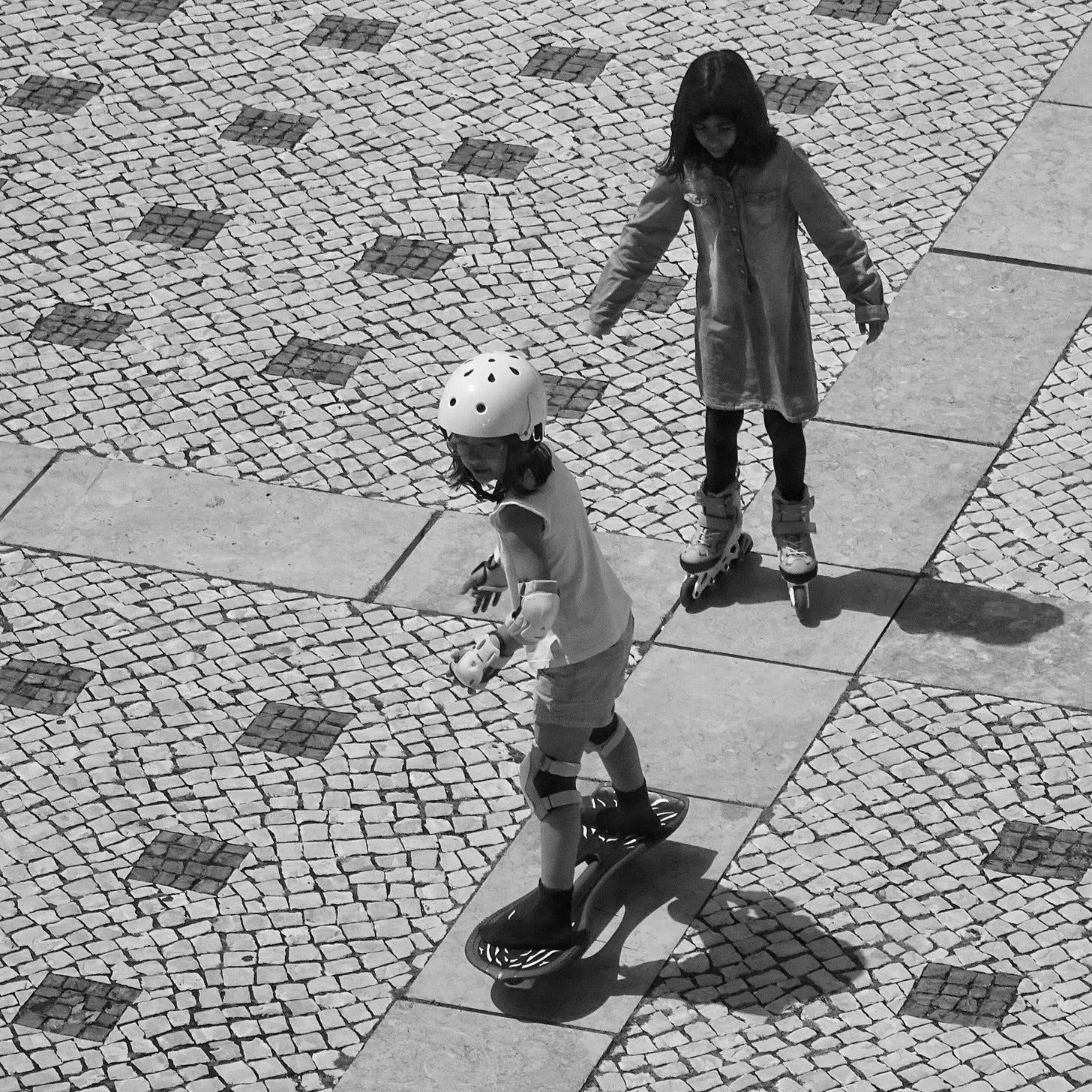Story Frame 79 – Learning to Skateboard in a Warzone (If You're a Girl)
“And the winner of the 2020 Best Documentary Short Subject is….” and here, actor Mark Ruffalo paused for dramatic effect.
“Learning to Skateboard in a Warzone (If You’re a Girl) by Carol Dysinger and Elena Andreicheva!” he yelled out to the audience.
I was incredibly excited on Carol’s behalf. It was exhilarating to see a filmmaker I’d worked with win an Oscar!
I wasn’t there, of course. It was Sunday the 9th of February 2021, and I was watching the 92nd Academy Awards on television at home, curled up on the sofa with my six-month-old puppy, Kiitos, and a glass of Prosecco.
Carol Dysinger has been a feature film and documentary editor for decades and she gets the art of story. Her editing credits include a number of films accepted into the Sundance Film Festival. She is also a tenured Professor of Graduate Film and New Media at NYU Film School in the Tisch School of the Arts and a Guggenheim Fellowship recipient. Learning to Skateboard in a Warzone (If You’re a Girl), also won Best Documentary Short at New York’s Tribeca Film Festival in 2019.
I’d met Carol through ITVS, public media’s independent film incubator, when they hired me in the spring of 2010 to pitch Carol’s earlier film to PBS stations nationally. Camp Victory, Afghanistan was a fascinating documentary that looked at the stark realities of the US/NATO "exit strategy" from Afghanistan.
The US arrived in Afghanistan after 9/11 to train the Afghan National Army to fight terrorism. Using nearly 300 hours of verité footage shot between 2005 and 2008, Carol’s film was the first to examine the boots-on-the-round story of trying to build a functioning Afghan military there.
Camp Victory, Afghanistan followed a battle-hardened, endearing Afghan General as he tried to work with an ever-changing stream of U.S. National Guard members deployed to train his soldiers. Carol’s film highlighted the daunting challenges of creating a modern Afghan army when in her words, ‘80% of the enlistees are illiterate, all are impoverished, the weaponry is second rate, and the enemy is elusive, dangerous and lawless.’
Despite heavy military aid from the US, Carol’s film demonstrated that money alone does not produce an army – people do. Camp Victory, Afghanistan was also a story about friendship and the unlikely bonds that form in war; that Afghans and Americans have more in common than anyone would expect.
The critics got it.
“The film crackles with the emotional energy and intelligence of its subjects,” raved The New York Times.
“Excellent, thought-provoking … a clear-eyed look at an irretrievably messy situation,” VARIETY ‘s reviewer commented, praising the film for showing how “the war to win the hearts and minds of Afghan soldiers carries its own perils and paradoxes.”
New York Magazine called it “Excellent … heartbreaking … the new face of war documentaries.”
I watched Carol make her way to the podium, then stand in the floodlights, beaming. I would have given an Academy Award to her just the title of her film, which I loved.
“Oh my god!” she said, turning around to look at her partner, Elena.
“Frank Capra handed me a student academy award in 1977, and I thought I’d skipped the hard part. I thought I would go on to make movies,” she continued. “And if I hadn’t had that encouragement at my back, back then, I wouldn’t have been able to withstand the last four decades in this business!”
Carole paused to nod in affirmation to the clapping and hoots from the audience. She then went on to thank a short list of backers, her editor, her cinematographer, and many others.
For anyone who has ever yawned through these moments, please try to understand how amazing and surreal it is to hear your name called, to be acknowledged and thanked in front of a global audience.
Two years later, when President Biden unexpected announced the American withdrawal from Afghanistan on the 30th of August in 2021, my first thought was to call Carol for her thoughts. I wasn’t the only one.
“Everyone’s calling me!” she laughed when I got her on the phone.
It was good to catch up and hear her latest news. I told her I still had the beautiful and evocative photograph she’d taken of three young girls on location in Afghanistan on a wall in my studio.
It’s the only time a filmmaker has gifted me with an on-location still from their documentary and it’s one of my most cherished souvenirs from this unexpected career of mine.
Kristin Fellows is a published writer, a world traveler, and a well-seasoned documentary film consultant. When not writing, Kristin can often be found listening to someone’s story or behind the lens of one of her cameras.
More about Kristin @ kristinfellowswriter.com
[photo of girls skateboarding & skating taken by me in Lisbon, 2018]





